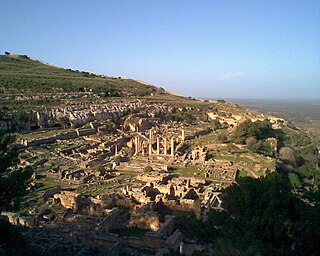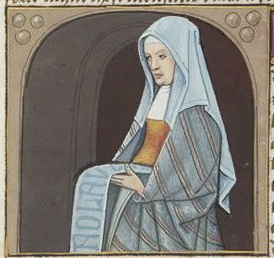F
| | This section is empty. You can help by adding to it. (July 2010) |
Philosophers born in the centuries BC (and others important in the history of philosophy), listed alphabetically:
| | This section is empty. You can help by adding to it. (July 2010) |
| | This section is empty. You can help by adding to it. (July 2010) |
| | This section is empty. You can help by adding to it. (July 2010) |
| | This section is empty. You can help by adding to it. (July 2010) |

This page lists some links to ancient philosophy, namely philosophical thought extending as far as early post-classical history.

Cyrene was an ancient Greek and later Roman city near present-day Shahhat, Libya. It was the oldest and most important of the five Greek cities, known as the pentapoleis, in the region. It gave eastern Libya the classical name Cyrenaica that it has retained to modern times. Located nearby is the ancient Necropolis of Cyrene. The traditional founder of the city was Battus the Lacedemonian, though the exact relationship between the fledgling city and other cities has led historians to question that narrative. Particularly, the idea that Thera was the sole "mother city" is disputed; and the relationship with other cities, such as Sparta and Samnium merchants, is unclear.
Apollonius is a masculine given name which may refer to:
This is a wide-ranging alphabetical list of philosophers from the Eastern traditions of philosophy, with special interest in Indo-Chinese philosophy. The list stops at the year 1950, after which philosophers fall into the category of contemporary philosophy.
This is a list of philosophers from the Western tradition of philosophy.
Polyaenus of Lampsacus, also spelled Polyenus, was an ancient Greek mathematician and a friend of Epicurus.

The Liezi is a Taoist text attributed to Lie Yukou, a c. 5th century BC Hundred Schools of Thought philosopher, but Chinese and Western scholars believe it was compiled around the 4th century CE.

Lampsacus was an ancient Greek city strategically located on the eastern side of the Hellespont in the northern Troad. An inhabitant of Lampsacus was called a Lampsacene. The name has been transmitted in the nearby modern town of Lapseki.

Leontion was a Greek Epicurean philosopher.
Metrodorus of Chios was a Greek philosopher, belonging to the school of Democritus. He is an important forerunner of Pyrrhonism and Epicureanism.
Metrodorus is the name of numerous historical figures, including:

Hellenistic philosophy is the period of Western philosophy and Ancient Greek philosophy during the Hellenistic period.
Metrodorus of Lampsacus may refer to two Greek philosophers:
This page is a list of topics in ancient philosophy.
Theodorus the Atheist, of Cyrene, was a Greek philosopher of the Cyrenaic school. He lived in both Greece and Alexandria, before ending his days in his native city of Cyrene. As a Cyrenaic philosopher, he taught that the goal of life was to obtain joy and avoid grief, and that the former resulted from knowledge, and the latter from ignorance. However, his principal claim to fame was his alleged atheism. He was usually designated by ancient writers ho atheos, "the atheist."
Philo the Dialectician was a Greek philosopher of the Megarian (Dialectical) school. He is sometimes called Philo of Megara although the city of his birth is unknown. He is most famous for the debate he had with his teacher Diodorus Cronus concerning the idea of the possible and the criteria of the truth of conditional statements.
Timocrates of Lampsacus was a renegade Epicurean who made it his life's mission to spread slander about Epicurus' philosophy and way of life. He was the elder brother of Metrodorus, Epicurus' best friend and most loyal follower, who was born in Lampsacus in the late 4th century BC. He studied with his brother in the school of Epicurus, but some time c. 290 BC, he broke with the school, apparently because he refused to accept that pleasure was the supreme good of life. The dispute became quite bitter; Philodemus quotes Timocrates saying "that he both loved his brother as no one else did and hated him as no one else." In a much quoted letter, Metrodorus, in exaggerated fashion, took Timocrates to task for not making the stomach the standard in everything relating to the prime good. Metrodorus wrote at least one work against Timocrates; and Epicurus also wrote an Opinions on the Passions, against Timocrates. In response, Timocrates wrote a polemic against Epicurus, whereby he claimed that Epicurus was not a genuine Athenian citizen, and that he was slovenly, weak, ignorant, rude, and vomited twice a day from overindulgence. His book against Epicurus, published after his apostasy, was entitled Delights (euphranta).